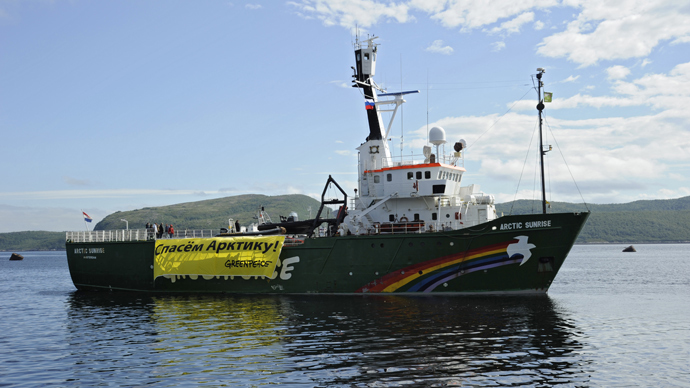Abertawe Bro Morgannwg health board faces neglect review
Lilian Williams from Porthcawl died at the Princess of Wales Hospital in Bridgend in 2012
The serious neglect of an elderly patient at two hospitals has led to a pledge from Wales' health minister for a review into a health board.
The family of Lilian Williams from Porthcawl said she was left dehydrated.
She was admitted to Princess of Wales Hospital, Bridgend, and Neath Port Talbot Hospital four times from August 2010 to November 2012, when she died.
Abertawe Bro Morgannwg University Health Board (ABMU) says it has robust measures in place to deliver safe care.
Mrs Williams was first admitted to hospital in 2010.
Her family complained the the health board about the way she had been treated at hospital claiming she had been left nil by mouth for several days leading to dehydration.
An inquiry was ordered which did not happen.
Two years later, Mrs Williams was readmitted but died at hospital.
 The family of Lilian Williams have criticised the care she received
The family of Lilian Williams have criticised the care she received
Concerns about how the hospital treated her were again raised and a review did take place with the health board admitting that she had been unnecessarily sedated and medication was not administered.
In July, BBC Wales reported how calls for inquiry were being made after Mrs Williams' death.
It led to Health Minister Mark Drakeford meeting her family earlier this month, and in a letter seen by BBC Wales, said the independent review into ABMU will cover:
- How professional nursing standards are protected and delivered consistently, and determine how the health board responds to lapses in delivery of these standards
- The culture of care, particularly focusing on the care of older patients in the medical wards
- Responding to complaints, particularly looking at how complaints are handled by the health board and how professionals are held to account for lapses in care identified through investigation of complaints, including protection of vulnerable adults (Pova) investigations
- Administration and recording of medicines, particularly looking at how medicines are given to patients who are cognitively impaired or have other challenges in taking medicines orally
Mr Drakeford also said he is considering the case for an independent review of how the 'Putting Things Right' NHS complaints and redress policy is being implemented in NHS organisations.
He said the review by Cynon Valley MP Ann Clwyd of complaint procedures in the NHS in England would be used to inform any work to improve the way complaints are handled in Wales.
"I wrote to Mr Williams, setting out what I intend to do in response to the concerns he raised with me at our recent meeting," said the minister.
"We will now be drawing up more detailed terms of reference for an independent review into certain areas of practice within ABMU Health Board, involving the senior and independent figure who we have asked to help lead this work.
"A statement will be made when that has been completed."
Darren Millar AM, shadow minister for health, welcomed the review but said a full inquiry was needed "to prevent any more vulnerable people from suffering horrific neglect and mistreatment".
'Nil by mouth'
When Mrs Williams was first admitted to hospital in 2010, her family complained to the health board.
Her son Gareth Williams said the treatment his mother received in hospital was appalling.
"Quite often I'd go in to visit her and I would find that she had been left nil by mouth for several days until she was weak and wasn't able to lift a glass of water to her mouth, she was dehydrated," he said.
"We sat by her bedside until her tongue swelled up and cracked and her lips split open for want of hydration.
"She became delirious at first, then barely conscious, almost coma-like."
At the time, the ABMU health board said it carried out a Pova investigation. However, the family was not contacted for six months, and no Pova inquiry had been undertaken.
Problems developed again when Mrs Williams was readmitted to hospital in 2012.
This time, concerns were raised with social services, and a Pova investigation did take place.
The health board admitted giving unnecessary sedation and failing to administer prescribed medication.
Care failures
The board also failed to care for Mrs Williams' leg, which had undergone amputation surgery, including failing to remove her false leg.
"We explained how her prosthesis could be taken off and showed them the bag of clean amputation socks that we'd taken in for her," explained her son.
"When I complained that she was having unnecessary sedation, they said it was because she was screaming at night.
"When I asked her why she was screaming at night, she told me that they hadn't taken her leg off in the two weeks that she'd been there."
Recommendations were put in place, but the family said there were similar issues when Mrs Williams was admitted to Neath Port Talbot hospital in August 2012.
Then she was transferred to the Princess of Wales Hospital, where she died in November.
The family say they were told by staff that medication was being stopped as she was dying of pneumonia.
However, a coroner's report found her lungs to be free of chronic disease, and she had died of a heart attack.
South Wales Police have arrested three nurses from Princess of Wales Hospital on suspicion of the falsification of records. All have been suspended from duty.
'Key actions taken'
The ABMU board said it welcomed the review being commissioned by the health minister.
A spokesperson said: "The health board already has a number of robust and pro-active measures under way to maximise the delivery of safe and high quality care for patients at the Princess of Wales Hospital, and already these actions are producing positive results."
The board said death rates for the hospital were "now in line with other hospitals in Wales" and mortality rates for injuries such as hip fractures "now compare with the best in the UK".
It said a key action had been the launch of an external quality and safety review by the Advancing Quality Alliance (AQuA).
"We are not complacent however and we very much welcome the support of an additional external review alongside the AQuA review."
The board highlighted progress in nursing care at the Princess of Wales, with its advanced nurse practitioner team being named as the winners of the Nursing Times Award for care of older people on Wednesday.
On issues involving Neath Port Talbot Hospital, the spokesperson added: "We accept that there were issues around the care of an individual patient while she was an inpatient at Neath Port Talbot Hospital for a brief time and these clearly must be addressed.
"However, there are not high numbers of complaints about Neath Port Hospital generally, and the main category involves access-appointment issues rather than poor care."









